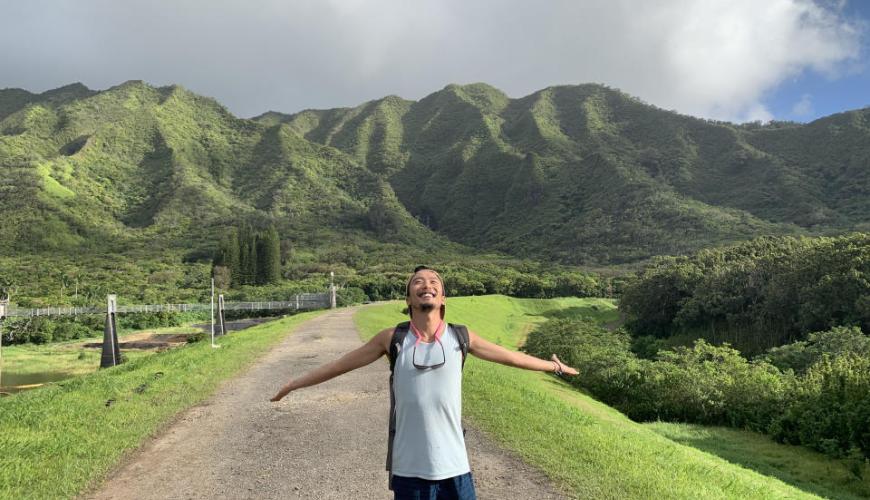An Introspection into the Power of Curiosity for Personal Growth and Societal Harmony
- 04 February 2024 2:03 AM

Renowned curiosity expert and author, Scott Shigeoka, in collaboration with the Greater Good Science Center in Berkeley, California, has delved deep into understanding the peculiar role of curiosity in bridging societal and political differences. Spanning five years, his studies form the basis of his enlightening new release “Seek: How Curiosity Can Transform Your Life and Change the World”.
Identifying as a city-born, liberally-inclined, Asian-American, spiritually-queer professor and scholar from Hawaii, now residing in San Francisco, Shigeoka, 35, has often encountered prejudiced assumptions based on his lifestyle and appearance. This personal experience triggered his quest to unveil the potential of curiosity to fortify relationships, enhance personal happiness, and enable a positive dialogue across multiple viewpoints and cultural differences.
Driven by his philosophy, he embarked on a one-year, thousand-mile cross-country expedition across the US, journeying through small towns in Alabama, attending a Trump rally in Minnesota, and visiting an indigenous reservation, to name a few of his diverse and eye-opening locales. Colorado was keen to put the findings from his extensive research to the test in real-world scenarios.
His overwhelming insight from this immersive journey was: “Owing to the lack of curiosity, divisions and disconnects have become widespread across the globe. Once we begin to disregard each other, we tend to resort to assumptions and biases, thereby making it easy to discriminate and fear.”
During a recent conversation with Yahoo Finance, Shigeoka expanded on how curiosity can elevate happiness and freedom, both in personal and professional spheres.
Justifying his decision to turn his research into a life-altering road trip, he stated, “Living out the research was integral for me. I was keen on using my real-time experiences to supplement my existing research findings.”
Regarding the benefits of curiosity in personal and work life, he stated, “A curious personality is generally happier and tends to maintain stronger, more meaningful relationships, thereby encouraging a sense of joy and connectivity with their surrounding community. Curiosity also exhibits an inverse relationship with anxiety and depression, thus playing a crucial part during the ongoing social separation crisis.”
Shigeoka asserts that curiosity is a desirable trait in today's dynamic workplaces, contributing to creativity, innovation, collaboration and, consequently, the overall growth in an organization. He claims, “Leaders who incorporate curiosity into their persona tend to be more liked, appear more competent, and are preferred to work for. Similarly, curious teams are usually more creative, collaborative, and innovative.”
During his travel, Shigeoka encountered numerous entrepreneurs, drawing the conclusion that curiosity can be instrumental in achieving business success. He recommends channeling one’s curiosity toward self-realization, understanding market dynamics, spotting gaps in the field, and learning from others’ experiences. He emphasizes that it is just as important to be curious about colleagues in a professional setting, leading to stronger relationships and better teamwork.
In the context of diversity in workplaces, he suggests that curiosity can help understand the varying skills, experiences, and viewpoints of different individuals, thereby fostering an environment of genuine empathy and reduced hostility.
Talking about the fear of change, Shigeoka suggests using curiosity as a tool to replace fear and anxiety, promoting optimism, hope, and excitement.
By being perpetually curious, one can become a student of life, encouraging constant learning and growth, and making adaptability and receptiveness to change an inherent part of one's personality. He underscores this as a critical trait for leaders in our rapidly-evolving world.
Drawing a parallel with the awe and curiosity evoked by nature, Shigeoka believes workplaces could significantly benefit by encouraging employees to hone their observational and focus skills, fostering a sense of connectivity.
Concluding his discourse, he warns against the harmful side of excessive curiosity or nosiness. He shared his three-pronged advice to differentiate genuine curiosity from unhealthy inquisitiveness: check whether you're the right person to investigate, consider the right timing, and know when to back off.
To embrace the power of curiosity in our daily lives, Shigeoka encourages cultivating a “beginner's mindset”. Such an approach ensures constant learning and growth, making you an asset to any team, regardless of your age or career stage. His insightful findings reiterate that curiosity can provide the impetus for personal growth, societal harmony, and professional success.
